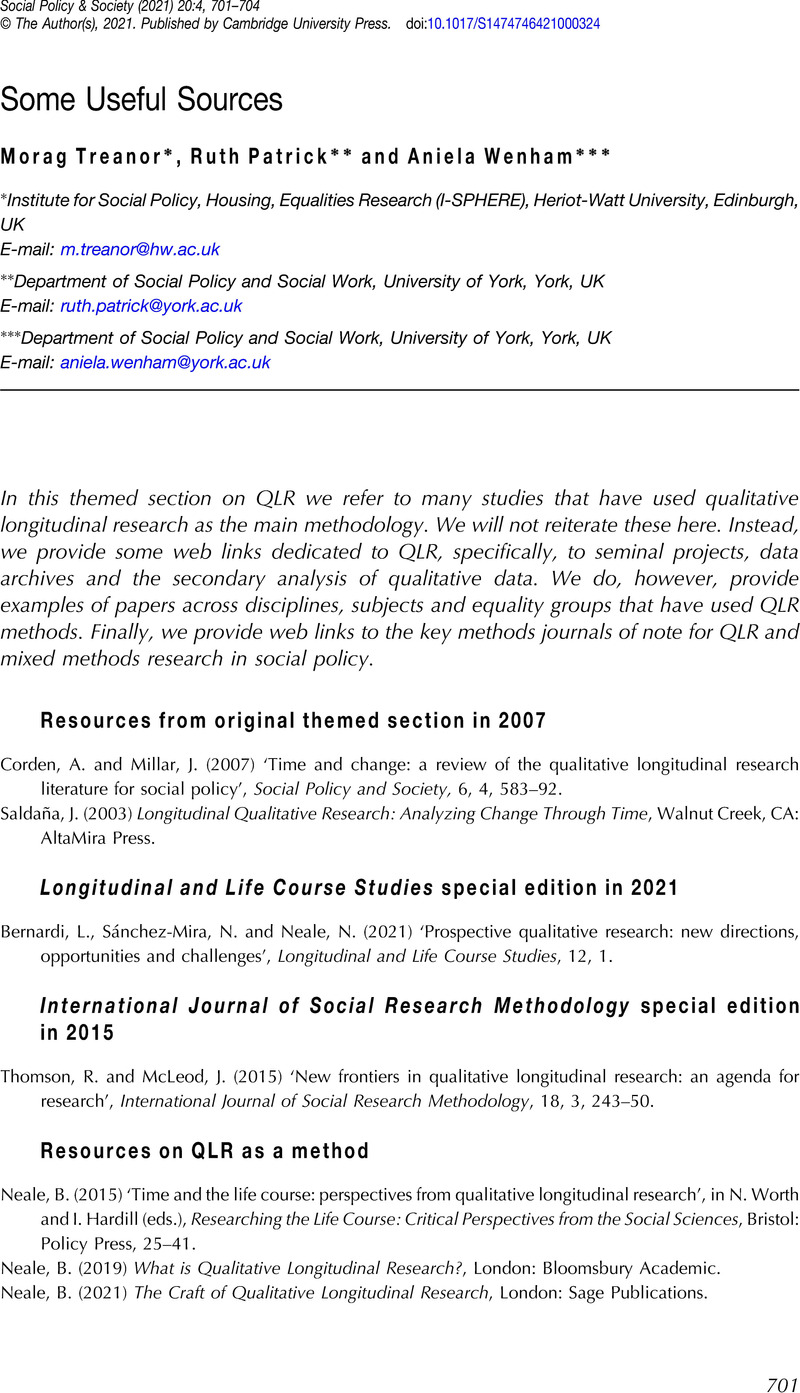No CrossRef data available.
Article contents
Some Useful Sources
Published online by Cambridge University Press: 18 August 2021
Abstract

- Type
- Themed Section: Qualitative Longitudinal Research for Social Policy – Where Are We Now?
- Information
- Copyright
- © The Author(s), 2021. Published by Cambridge University Press
References
Resources from original themed section in 2007
Longitudinal and Life Course Studies special edition in 2021
International Journal of Social Research Methodology special edition in 2015
Resources on QLR as a method
Resources relating to poverty, welfare reform and austerity
Qualitative longitudinal approaches are ideally suited to seeking a better understanding of the efficacy and consequences of welfare conditionality and enabling an exploration of how the policy assumptions underpinning this approach intersect with (and often contradict) lived experiences (Dwyer and Patrick, 2021: 63). The article by Dwyer and Patrick is part of a special issue that focused on QLR methods.
Longitudinal qualitative mixed methods
Resources from other disciplines
Resources on specific groups
Resources on time as a relative concept
QLR projects
1. WelCond study www.welfareconditionality.ac.uk
2. Following Young Fathers Further study: https://fyff.blogs.lincoln.ac.uk/
3. Dole Animators https://doleanimators.org.uk
4. Timescapes https://timescapes-archive.leeds.ac.uk/timescapes
5. Welfare reform and larger families project www.welfarereform-largerfamilies.org.uk




